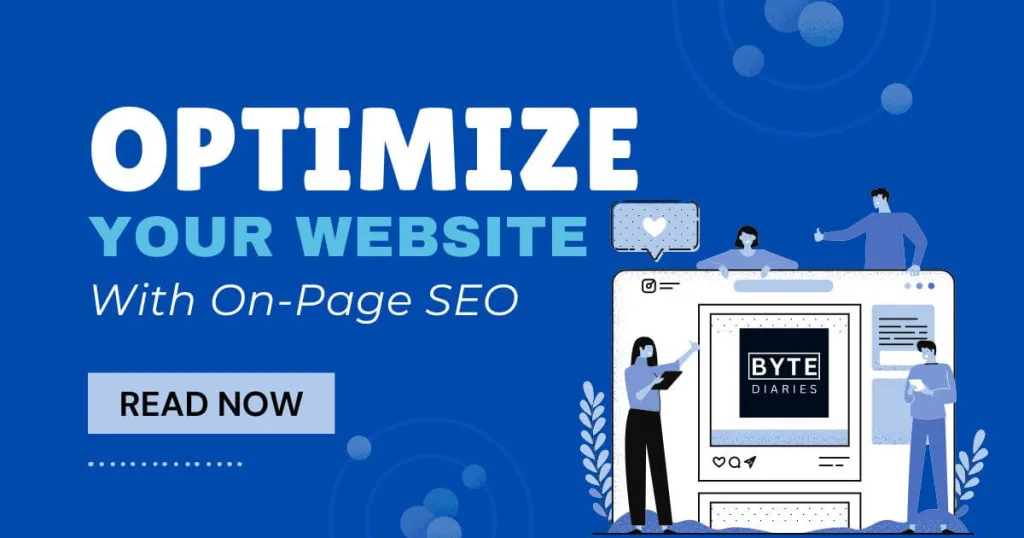Ever wonder why some small businesses seem to be everywhere on Google, while others barely show up? It’s all about local SEO for small businesses!
Think of it as a way to make sure your business pops up when people nearby are searching for exactly what you offer. Whether you’re a coffee shop or a plumber, local SEO is your secret weapon to getting noticed online.
Let’s dive into 7 easy strategies you can use to improve your local SEO and dominate search results in your area!
Table of Content
- What Is Local SEO for Small Businesses?
- Why Does Local SEO Matter for Small Businesses?
- 7 Easy Ways to Improve Local SEO for Your Small Business
- 1. Optimize Your Google My Business Listing
- 2. Use Location-Specific Keywords
- 3. Get More Online Reviews
- 4. Create Content Focused on Your Location
- 5. Build Citations Across the Web
- 6. Use Social Media for Local SEO
- 7. Use Schema Markup (Structured Data)
- The Benefits of Local SEO for Small Businesses
- Common Mistakes to Avoid in Local SEO
- FAQs about Local SEO for Small Businesses
- 1. What is local SEO?
- 2. Can I do local SEO for free?
- 3. How long does it take to see results from local SEO?
- 4. How do I optimize my Google My Business listing?
- Conclusion
📌 Related: If you’re new to SEO, start with our SEO Basics Guide before diving into on-page strategies.
What Is Local SEO for Small Businesses?
Local SEO is about making sure your business shows up when people search for something nearby. Whether they’re looking for “best sushi near me” or “plumbing services in [Your City],” local SEO helps put your business on the map.
Unlike regular SEO, which targets a wider audience, local SEO is all about reaching people in your neighborhood, town, or city. It’s the best way to connect with customers who are ready to buy or visit you in person.
Why Does Local SEO Matter for Small Businesses?
Still not sure why you should care? Here’s why local SEO is a game-changer:
- More Visibility: When you optimize for local SEO, you make sure people can find you when they search for services near them.
- Better Targeting: Local SEO helps you reach potential customers who live nearby and are more likely to visit or buy from you.
- Easier Engagement: Your Google My Business profile and reviews make it easy for customers to connect with you directly.
7 Easy Ways to Improve Local SEO for Your Small Business
Ready to show up on Google when people search for your business? Let’s get into the actionable strategies that can help you dominate local SEO!
1. Optimize Your Google My Business Listing
Google My Business (GMB) is one of the most important tools in local SEO. Here’s how to make it work for you:
- Claim Your Listing: Go to Google My Business and claim your business.
- Complete Your Profile: Add your address, phone number, business hours, and website. Upload photos and write a description of your business to let people know what you do.
- Update Regularly: Keep your profile fresh by adding posts, responding to reviews, and making sure your hours are accurate.
2. Use Location-Specific Keywords
Instead of just using broad keywords like “plumber” or “restaurant,” add your location! For example:
- “Plumbing services in [Your City]”
- “Best pizza in [Neighborhood]”
By using location-based keywords, you’re helping Google connect your business to people who are nearby and searching for what you offer. Want more tips? Check out this guide on local keywords.
3. Get More Online Reviews
Reviews are huge for local SEO! Here’s how to make the most of them:
- Ask for Reviews: Encourage happy customers to leave reviews on Google, Yelp, or Facebook.
- Respond to Reviews: Whether the review is good or bad, always take the time to respond. It shows you care and helps build trust.
- Build Credibility: The more positive reviews you get, the more likely you are to show up higher in search results.
Not sure how to handle reviews? Here’s a guide on managing reviews.
4. Create Content Focused on Your Location
Show people (and search engines!) that you’re local by creating content about your area. Try blog posts like:
- “5 Things You Didn’t Know About [Your City]”
- “Why [Your Business] is the Best Choice for [Service] in [City]”
This type of content helps search engines understand that you’re relevant to your area and increases your chances of showing up in local searches.
5. Build Citations Across the Web
Citations are mentions of your business on other websites. The more accurate and consistent they are, the better your local SEO ranking. Here’s how to build them:
- List Your Business in Directories: Sites like Yelp, Yellow Pages, and local directories are great for building citations.
- Ensure Consistency: Your Name, Address, and Phone number (NAP) should be the same everywhere online to avoid confusing search engines.
Want more about citations? Here’s a helpful guide.
6. Use Social Media for Local SEO
Social media isn’t just for posting photos—it can help with local SEO, too! Here’s how:
- Tag Your Location: Whenever you post, tag your business’s location to show up in local searches.
- Encourage Local Engagement: Ask your local customers to tag your business or share your posts. It’ll help you get noticed and build a loyal following.
Need more tips? Check out this article on social media and local SEO.
7. Use Schema Markup (Structured Data)
Sounds complicated? Well, it’s not as complicated as it sounds.
Schema markup is like a cheat sheet for search engines. It’s a special code you add to your website that helps Google and other search engines better understand your business information, like your address, phone number, reviews, and business hours. This makes it easier for search engines to display your business in search results—sometimes directly in rich snippets!
Here’s how to use schema markup for local SEO:
- Add Structured Data to Your Website: Use schema.org to mark up important details about your business, like your NAP (Name, Address, Phone Number), opening hours, and customer reviews.
- Use Local Business Schema: There’s a specific schema type for local businesses. You can find it on schema.org and apply it to your site to help search engines categorize your information.
- Enhance Search Results: By using structured data, you might see your business appear in “rich results”—those enhanced search listings with extra info like your star ratings, hours, and even direct links to your website or reviews.
For a quick start, you can use tools like Google’s Structured Data Markup Helper to generate the code, and check its accuracy with Google’s Rich Results Test.
Want to learn more? Check out this guide on using schema markup.
The Benefits of Local SEO for Small Businesses
Still wondering if it’s worth it? Here’s why local SEO is a smart choice for your business:
- More Traffic: Appear in local searches and attract more people who are ready to buy or visit.
- Higher Conversion Rates: Local SEO targets customers near you, making it more likely that they’ll become paying customers.
- Cost-Effective: Local SEO is an affordable way to market your business compared to traditional ads.
- Stand Out from Competitors: Not everyone does local SEO. By doing it, you’re ahead of the competition.
Common Mistakes to Avoid in Local SEO
Don’t fall into these traps:
- Ignoring Mobile Users: Many people search on their phones, so make sure your website is mobile-friendly.
- Inconsistent Information: Keep your business details (NAP) consistent across all platforms to avoid confusion.
- Neglecting Reviews: Not asking for or responding to reviews can hurt your online reputation.
- Skipping Local Content: Failing to create location-based content can limit your chances of ranking locally.
FAQs about Local SEO for Small Businesses
1. What is local SEO?
Local SEO helps your business show up in local search results when people search for nearby businesses or services.
2. Can I do local SEO for free?
Yes! Many local SEO steps, like claiming your Google My Business listing and using location-specific keywords, are free.
3. How long does it take to see results from local SEO?
It typically takes a few weeks to a few months to start seeing results, but consistency is key!
4. How do I optimize my Google My Business listing?
Complete your listing with accurate details, photos, and updates, and respond to reviews to keep it fresh.
Conclusion
Local SEO is one of the best ways to get your small business noticed online. By using these simple strategies—like optimizing your Google My Business profile, getting reviews, and using location-specific keywords—you’ll start showing up in local search results and attracting more customers.
Want to dive deeper into SEO? Check out our guide on On-Page SEO for even more tips!


